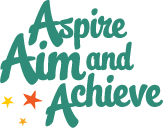Post-Primary
Classroom Activities (Key Stage 3)
The classroom activities are structured learning and teaching opportunities. There is a strong emphasis on the Olympic and Paralympic values throughout the activities. They therefore have a strong Personal Development focus. There are, however, opportunities throughout the activities to connect learning with other subjects such as Local and Global Citizenship, History, Geography and Art and Design.
| Activity | Description | Area of Learning | Cross-Curricular Skills | Thinking Skills and Personal Capabilities |
|---|---|---|---|---|
| Introducing the Olympic and Paralympic Games | Pupils carry out research into the ancient Olympics, the modern Olympic movement and the Paralympic Games, then create a presentation about their findings. | Local and Global Citizenship History |
Communication Using ICT |
Managing Information |
| Olympic and Paralympic Values | Pupils explore the values of the Olympic and Paralympic Games then learn how to identify the values in their own and others behaviour. | Personal Development | Using ICT Communication |
Self- Management |
| Symbols of the Olympic and Paralympic Games | Pupils look at the different symbols of the games. They think about branding and logo design, then come up with a brand for their school's Olympic and Paralympic event. | Art and Design Local and Global Citizenship |
Using ICT Communication |
Being Creative |
| Heroes | Pupils research an Olympic/Paralympic athlete and present to the class why they think they are a hero. | Personal Development History (depending on chosen athlete) | Communication Using ICT |
Managing Information |
| Sustainability and Legacy | Pupils look at the sustainability element of London 2012 and Rio 2016. They consider the impact of large sporting events and debate the cost of such an event. Finally, they create a bid for an international sporting event to come to Northern Ireland. | Geography Local and Global Citizenship |
Communication Using ICT |
Thinking, Problem-solving and Decision-making |
| Health and Fitness | Pupils explore the recommended amounts of physical activity for children and young people. They carry out a survey on physical activity in their school/class. They research other sports that young people may be interested in. | Personal Development Home Economics |
Using ICT Communication Using Mathematics |
Self-Management Managing Information |

